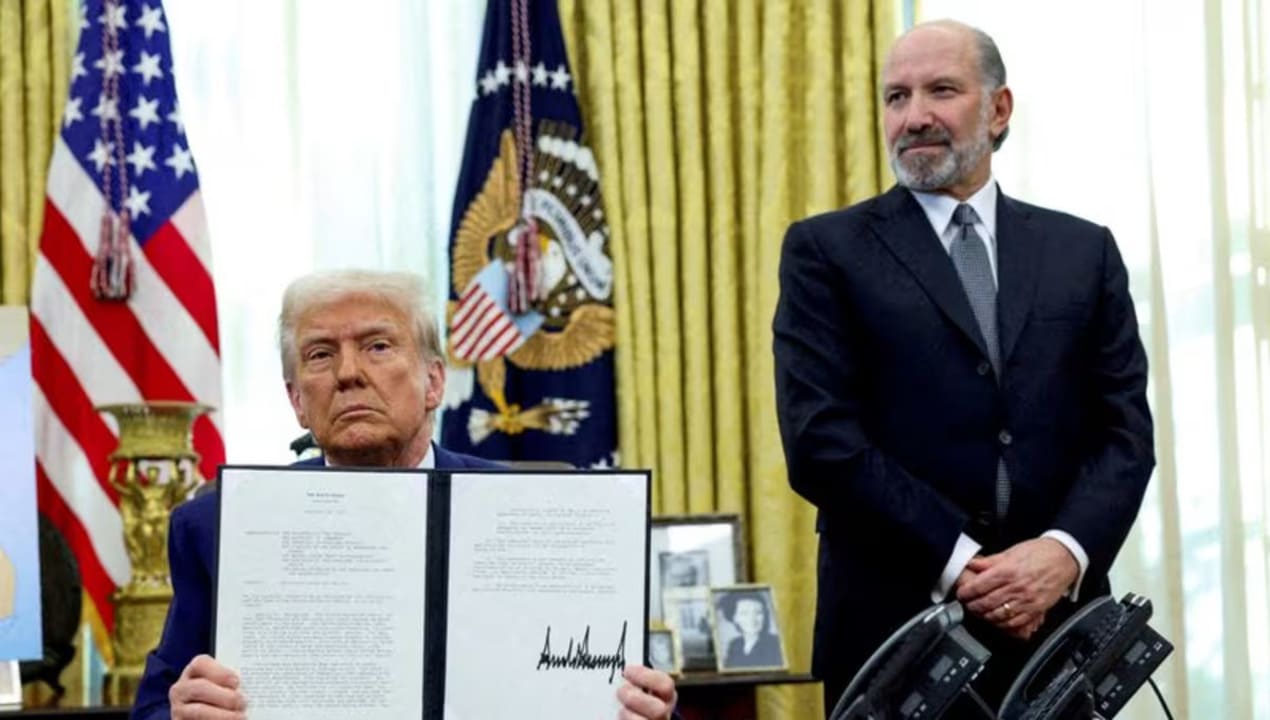
Independent Report – On April 2, 2025, U.S. President Donald Trump officially imposed a reciprocal tariff of 32 percent on Indonesia. A policy that increases the tariff from the base rate of 10 percent applied to all countries. This move is seen as a response to Indonesia’s trade policies. Potentially creating pressure on Indonesia’s export performance to the United States. Mukhamad Misbakhun, the Chairman of the Indonesian House of Representatives’ Commission XI. Anticipates that this tariff policy will negatively affect Indonesia’s export trade with the U.S. He urged the economic team of President Prabowo Subianto’s administration to carry out a comprehensive consolidation to deal with the potential economic shock from this policy.
Misbakhun emphasized that such consolidation must involve all stakeholders. The government, he pointed out, needs to carefully assess the potential profits and losses of this new tariff. Particularly in terms of its impact on Indonesia’s overall economy. He also commended the Indonesian government’s initial steps, such as sending a Special High-Level Team to negotiate with the U.S. He expressed hope that these negotiations would yield favorable results for Indonesia.
In 2024, Indonesia’s exports to the United States amounted to USD 26.4 billion, representing 9.9 percent of Indonesia’s total national exports. The country had a surplus in its trade with the U.S. Misbakhun noted that Indonesian exports are mainly comprised of labor-intensive industries such as textiles, garments, footwear, palm oil (CPO), and electronics. The new U.S. tariff policy, however, is expected to put pressure on these industries. Making Indonesian products more expensive in the American market. To remain competitive, Indonesian producers will need to find ways to increase efficiency in their production costs while ensuring their businesses can survive.
Also Read : Trade Diplomacy: Dasco DPR on US Tariffs
The impact of this new tariff could also extend to Indonesia’s state budget. Misbakhun predicted that the additional tariff would likely affect the performance of export-oriented companies in Indonesia. This could lead to reduced profits and, consequently, lower tax revenues for the state. He explained that tax revenue from customs duties, taxes, and non-tax state revenues (PNBP) is heavily influenced by the performance of exports and global commodity prices. As a result, the Indonesian government may need to revise its revenue targets in the 2025 state budget.
Furthermore, Misbakhun cited President Prabowo’s directive for structural improvements in the economy, through deregulation or the simplification of regulations that hinder economic activities. Misbakhun believes that if these measures are implemented. They will help Indonesian industries to become more efficient and competitive in the global market. Allowing them to weather the economic pressures more effectively.
Misbakhun also urged Bank Indonesia (BI) to be proactive in managing the exchange rate of the rupiah against the U.S. dollar. With the expectation that prices for goods in the U.S. will rise, while American workers’ wages remain unchanged, inflation in the U.S. is likely to increase. Misbakhun predicts that the U.S. Federal Reserve (The Fed) will likely reduce interest rates as a means to control inflation. This could trigger further uncertainty in the markets, potentially causing corrections in economic growth predictions and exerting pressure on the exchange rate of the rupiah.
Given this scenario, Misbakhun stressed that Bank Indonesia must take serious action to stabilize the rupiah’s value. He advised that BI should seize the opportunity during the Lebaran holiday period to implement stabilization measures, ensuring that the rupiah does not weaken beyond critical levels when the markets reopen.
The new U.S. tariff policy is seen as a significant challenge for Indonesia, but Misbakhun is optimistic that the economic team under President Prabowo’s leadership will find the right policy solutions to mitigate the impact of this tariff. He expressed confidence that through these efforts, Indonesia will be able to manage the potential economic fallout effectively.
Meanwhile, Deputy Speaker of the Indonesian House of Representatives, Sufmi Dasco Ahmad, also commented on the issue. He emphasized the importance of diplomatic efforts between Indonesia and the U.S., noting that the U.S. is a crucial trading partner for Indonesia. He cautioned, however, that Indonesia must avoid becoming a dumping ground for products from other countries that cannot be sold in the U.S. Such a situation could undermine Indonesia’s industrial products and hinder its efforts toward economic diversification.
Dasco concluded by stressing that protecting the national economy is the responsibility of all sectors, including the government, private sector, and other institutions. It is essential for all stakeholders to work together to safeguard Indonesia’s economic interests.
Also Read : Fadli Zon: Prabowo’s Strategy to Strengthen Economic Sovereignty in Indonesia